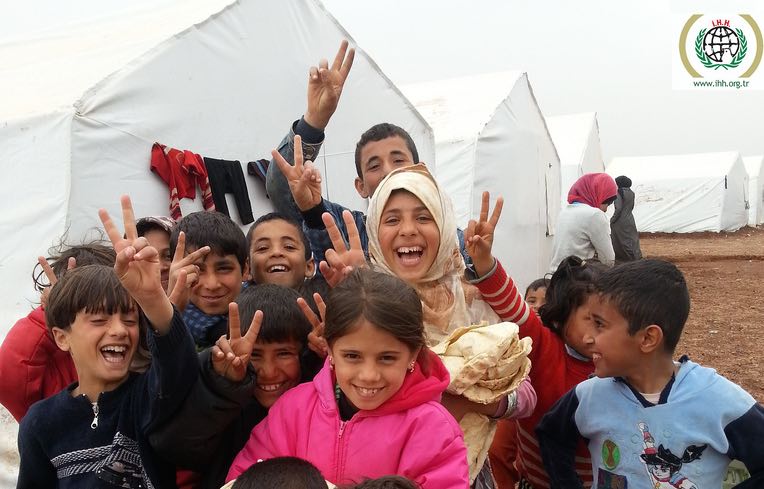This is the second in a series of articles by VOC reporter Yaseen Kippie, reflecting on his recent trip to the Syria-Turkey border
From its roots in the popular Arab uprisings in 2011, the Syrian war has been going on for the past 6 years, as citizens launched a peaceful protest opposing President Bashar al-Asad’s regime. Responding with force, the chaos caused by the army created the uprising caused a political vacuum into which poured ISIS foreign fighters, Al Qaeda and other groupings.
Today, with groups including the Turkish army, the Kurdish army, rebel groups, ISIS, Hezbollah, the US army, Iran as well as the Gulf States engaged, a war utilising internationally recognized illegal weapons of war by Asad’s army seems like it has no end in sight.
And with the rise of ‘fake news’ and a ‘Trumpean’ dumb-downed rhetoric, there is an atmosphere of confusion surrounding the subtleties of politics, yet people are increasingly interested in the conflict. I was recently part of a delegation from South Africa as an independent correspondent for the Voice of the Cape covering the Muslim Judicial Council (MJC) and the Darul Islam Zakah and Relief Funds (DAIZAF) humanitarian efforts at bringing relief to the Syrian refugees at the Syrian-Turkish border in the form of vital basic necessities and aid.
Speaking to Syrians affected by the conflict, they told me both of the political as well as the inhumane effects of the war. I have touched on the human welfare crisis in a previous article. The main organization affiliated with relief work for the Syrian refugees in Turkey is the IHH Humanitarian Relief Foundation. Founded in 1992 by the leaders of the student movement against the secular government of the time who strongly limited their relief work, the current president Mr Bulent Yildirim, closely linked with the Turkish President Recep Tayyip Erdoğan, is now able to move freely with the organization to over 142 countries worldwide.

The IHH officials gave an in-depth analysis of the political situation in the Syria. This comes at a time where Turkey is going through a volatile period with the upcoming Turkish Constitutional Referendum. Some in opposition are eager to vote towards a Turkey without the so called ‘Islamist’ president.
According to Sarkan Oktem, IHH’s head at the Urfa offices, ISIS controlled areas in Syria constitute the majority, with the Turkish and Kurdish governments controlling the North Western areas.
“President Bashar al-Asad’s government control is in the west but more and more areas surrounding Aleppo are coming under the Syrian Army’s control. The Free Syrian Army is largely in the Kurdish controlled areas, and we hope to support the Kurds to gain the entire North.”

A Syrian refugee named Ahmad, stationed in a recovery home, is known as one of the ‘Mujahideen’ by those around him.
“We fight both ISIS and Asad’s army simply to protect our families and our land. We did not ask for this,” he told me.
Another Syrian refugee pointed towards his leg and showed me how it was butchered by ISIS and not the Syrian Army and said,”Asad, God’s curse be upon him, and Daesh (ISIS) are best friends!”
The impression I got speaking to multiple Syrians was that there was maximum effort being made to remove them from their homeland.
“Asad wants to claim the land. ISIS are not Muslims!” said yet another Syrian named Abdul Aziz.

A representative of the IHH said despite the political conflict, their goal was clear: to rebuild the lives of the Syrian people.
“Tell our South African brothers that despite the political conflict, we are here to serve the Syrian people. And in order to defeat Asad politically we need to rebuild Syria within Syria, because if we continue to bring Syrian refugees over without establishing camps within Syria, everything they once knew will be lost,” he said.
“This is the plan of Iran and its allies, including Israel. Israel does not want any country on its borders to have stability. We need the global community to take a region in Syria and rebuild it so that the Syrians can have their lands and life back.”
An important point to make is that the ideologies of the jihadist groups which poured into the vacuum created at the beginning of the revolution was overwhelmingly rejected by the majority of Syrians who are from the Ahlus Sunnah denomination of Muslims.
I met a man belonging to the ‘Mujahideen’ who was part of the Rifa’iyyah Tariqah of Sufism who told me how anti-traditional ISIS was and in his instance took 70 of his students and youth in the city of Hama and killed them.
The political situation in Syria is one of multiple influences and many things seemingly true are not always factual. Whether it is the claims that ISIS are a Zionist façade, or that Iran in the East and Hezbollah in the West are trying to stake a Shia takeover of the entire region, we must question the authenticity of our information sources primarily. Interacting with those directly affected by this despicable war definitely broadens ones perspective.
Despite many Syrian children not aware of the groups involved in the Syrian conflict, they are increasingly exhausted and simply want to be with their families, happily. VOC






 WhatsApp us
WhatsApp us 

